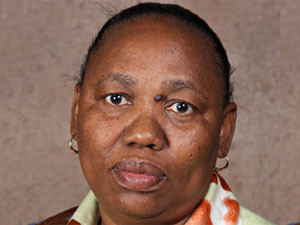
The Department of Basic Education (DBE) does not know the full extent of the shortages of mathematics, science and technology (MST) teachers, although a recent education report found that poorly-qualified teachers are the main problem regarding MST subjects in schools.
This is according to DBE minister Angie Motshekga, in response to questions posed by Democratic Alliance (DA) shadow minister of basic education Annette Lovemore on what action the department will take in reaction to the report's findings.
In Motshekga's response, she concedes the department has not determined quantitatively the level of shortage of MST teachers. However, Motshekga says a dedicated MST unit will be set up to develop a system that provides updated profiles of teacher competences, qualifications and equipment needed to support more effective teaching of technology.
"In 2014, the [DBE] will be embarking on teacher training programmes to equip teachers in practical skills through skills training centres in all provinces," she says.
Lovemore responded to this saying the DBE's lack of data in essence implies it cannot adequately plan to address MST teacher shortages, and turn around the poor MST results. "Having qualified, capable, specialist maths and science teachers in every classroom is critical to improving our learners' poor maths and science performance," she says. "This is highly concerning given the crisis of poor quality maths and science education in SA as illustrated by various reports."
Lovemore emphasises Motshekga has not done enough to address the maths, science and technology crisis. "She relies on the outdated MST Strategy of 2001. She appointed a task team to investigate the implementation of this outdated strategy, and missed the golden opportunity this offered her to investigate the number, qualifications and utilisation of maths, science and technology teachers in our country."
She notes she will write to Motshekga to ask when full teacher audits will be taking place and when the MST strategy will be updated to reflect and address current challenges.
Action plan
The report, which was released in October, was compiled by a task team consisting of 11 members appointed by Motshekga in February. The team visited schools in all nine provinces and consulted with teachers, curriculum coordinators and subject advisors, conducted interviews, analysed background literature and met with service providers.
Motshekga says the department has already started taking action in response to the report findings. "The department has completed the writing process for the Curriculum and Assessment Policy Statements (CAPS) for technical schools," she says.
One of the activities for CAPS implementation is an advocacy campaign to increase learner participation in technology subjects. The CAPS also state its objective is to finalise norms and standards for funding and infrastructure in technical schools.
"Furthermore, the [DBE] will be conducting an audit of infrastructure, teachers and equipment to determine the readiness of implementation. Schools in need of equipment will be funded through the Technical Schools Recapitalisation Grant. All these initiatives are aimed at addressing the challenges of technology subjects."
Motshekga says the department cannot respond to the report's findings that certain textbooks are error-ridden and lacking depth, as the department "deals with each case as it arises". She says the DBE last year received positive feedback from the Australian Council for Educational Research on the quality of the Siyavula textbooks that are being used.
"The DBE always responds and mediates every query received regarding materials developed by the department. To date, on our records, the department has not received reports of or complaints, about the lack of depth of the materials. The department would welcome reports of errors in the Siyavula textbooks to be forwarded to the department as materials development is an ongoing process."
Share